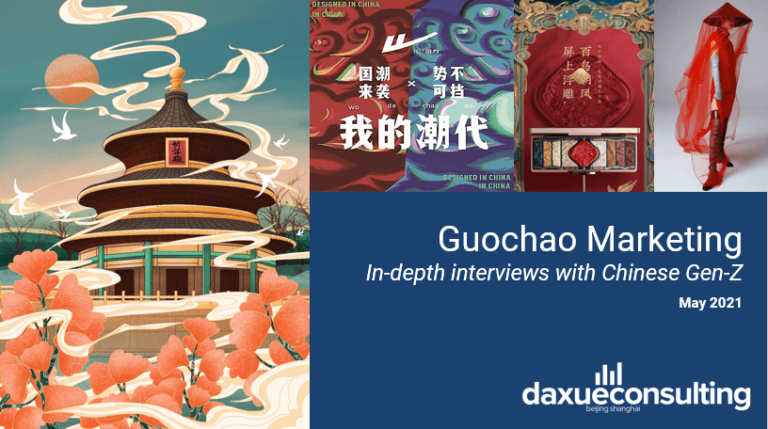Conducting in-depth interviews in China is a key feature of any market research
In-depth interviews in China (IDI research) are techniques of qualitative research in China that involve conducting intensive individual interviews, usually with a small number of respondents, to analyze their perspectives, experiences or feelings regarding a particular market situation, marketing concepts or anticipated product launches in China. To validate the hypothesis, qualitative research in China can also be used to challenge and evaluate the adoption rate of innovation and business models developed by our clients or their competitors by collecting feedback from professional working daily within the market of interest.

Qualitative research in China implies asking the respondent open-ended questions to obtain data needed by the researcher. The number of in-depth interviews in China will be adjusted according to the needs. We first define all the needed pieces of information and then identify the knowledgeable persons to provide us valuable insight. These insights can involve:
- opportunities in given markets,
- red flags/deal breakers in given business models,
- best practices in the sector,
- details on traditional/typical China distribution strategies,
- key drivers of growth in a marketing and client acquisition perspective,
- legal and administrative framework,
- validation of hypothesis/strategy routes that were identified during initial research.
According to Daxue Consulting project manager Huan Zhang, in-depth interviews in China are often conducted at the beginning of a large research project when it is necessary to narrow the focus of the research and gain an insight into individual evaluations of a specific material. Moreover, in a country where the data-reliability and transparency is a major issue for market researchers, gaining first-hands insights from the most knowledgeable professional persons is key leverage to understand market situation and opportunities better. That is why Daxue Consulting pays specific attention to the development of its market insiders’ network for its qualitative research in China.
Daxue Consulting executes various projects of qualitative research in China
Daxue Consulting has conducted in-depth interviews in China as part of most of its projects, including for clients in the F&B and wine industries. For instance, in the wine industry, Daxue realized 80 to 100 in-depth interviews of wine professionals in all China. Among other case studies, Daxue conducted a project for InterRhone. InterRhone is a French wine organization that assists French Rhone Valley’s wines producers to export and promote their products to China. It launched a BtoB promotional campaign in 2012 targeting wine professionals all around China. InterRhone contacted Daxue to get an assessment of the impact of this promotional campaign.
Daxue’s team completed a benchmark of the influence of wine organizations in China, realized a series of in-depth interviews in China with wine experts, and organized focus groups of end-users to understand their perceptions. Eventually, Daxue provided InterRhone and the European Union with key insights, accurate ROI analysis, conclusion, and recommendations on how to improve their promotional campaigns and their strategy in China for the next two years. All of this beginning with qualitative research in China.
Managing every step of qualitative research in China
Designing the IDI’s guideline questionnaire
In-depth interviews in China require a lot of advance preparation. For instance, Daxue team will first work with its client on an IDI guidelines questionnaire. The aim of the questionnaire will be to give a direction to the discussion, avoid losing information during the interview by suggesting some items and questions, identifying decisive information, defining an introduction towards the interviewee, and so on. This preparation is key in every quality research in China. The questionnaire will, of course, be fully adaptable to the client’s requirements and need of information. It will also leverage the combination of other research methodologies such as desk research or big data. The project manager will use these existing findings to redirect the IDI guidelines to the most crucial issues and dynamics in the market today. The IDI’s moderation will then be managed by one of Daxue Consulting’s in-house trained and experienced moderators.
Recruit knowledgeable professionals for in-depth interviews in China
Another crucial step is the recruitment of respondents. Daxue’s experts first define criteria with the client for this specific recruitment, and then identify potential participants in Daxue’s database of professionals according to the following criteria: professionals who are knowledgeable in our client’s field of interest in China.
Besides our own extensive professional network in a multitude of sectors such as F&B, automotive, cosmetic, high-tech, digital and so on, Daxue calls upon alumni from the top Chinese Universities partnering with Daxue, such as Tsinghua University, Peking University, and Jiao Tong University. Daxue Consulting also targets respondents in professional networks and discussion about the topic of interest, during events that gather experts of the sector, and through cold calls.
Providing a decision-oriented analysis report to our client
Finally, qualitative research in China will be summarized and analyzed in order to outline the key information collected. Based on the responses received through the in-depth interviews in China, conclusions will be drawn as:
- the ideal sales and marketing strategies our client could implement in China,
- the best practices to follow when entering their market of interest,
- the needed investment and expected revenue generation,
- the market acceptance of potential innovation and therefore the product development efforts to pursue,
- the legal and administrative process to follow to set up their presence in China and so on.
Combine in-depth interviews in China with other qualitative and quantitative methods
Our qualitative projects can also include methodologies such as consumer and market insider focus groups in China, market watch, ethnographic research, social listening, competitors’ benchmark, mystery call and visits, APP-testing, Eye-tracking in China, sensory testing and so on. Some quantitative methods such as online or offline survey can naturally be added into any research as well.
Qualitative research in Shanghai, Beijing, Guangzhou, Shenzhen and more
Daxue Consulting benefits from an extensive network of both local professionals and end-consumers in China, covering any of the top 30 cities in China. Over the last few months, our team has interviewed professionals and consumers in industries such as F&B, cosmetics, education, luxury, high-tech, or personal care. We especially consolidated market reports and strategic approach for international brands in:
- Tier-1 cities Beijing, Shanghai, Shenzhen, Guangzhou, Chengdu, and Tianjin as well as
- Tier-1+ cities such as Guangzhou, Nanjing, Chongqing, Kunming, Xi’an, Wuhan, Shenyang, Dongguan
- And many tier-2 and -3 cities.
Interested in qualitative research in China? Contact us to discuss your project, our international team is dedicated to delivering you the best Chinese insights.
See our services:





